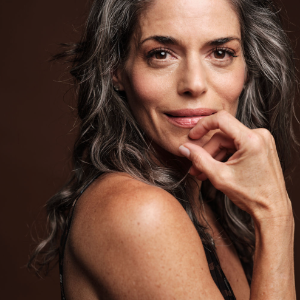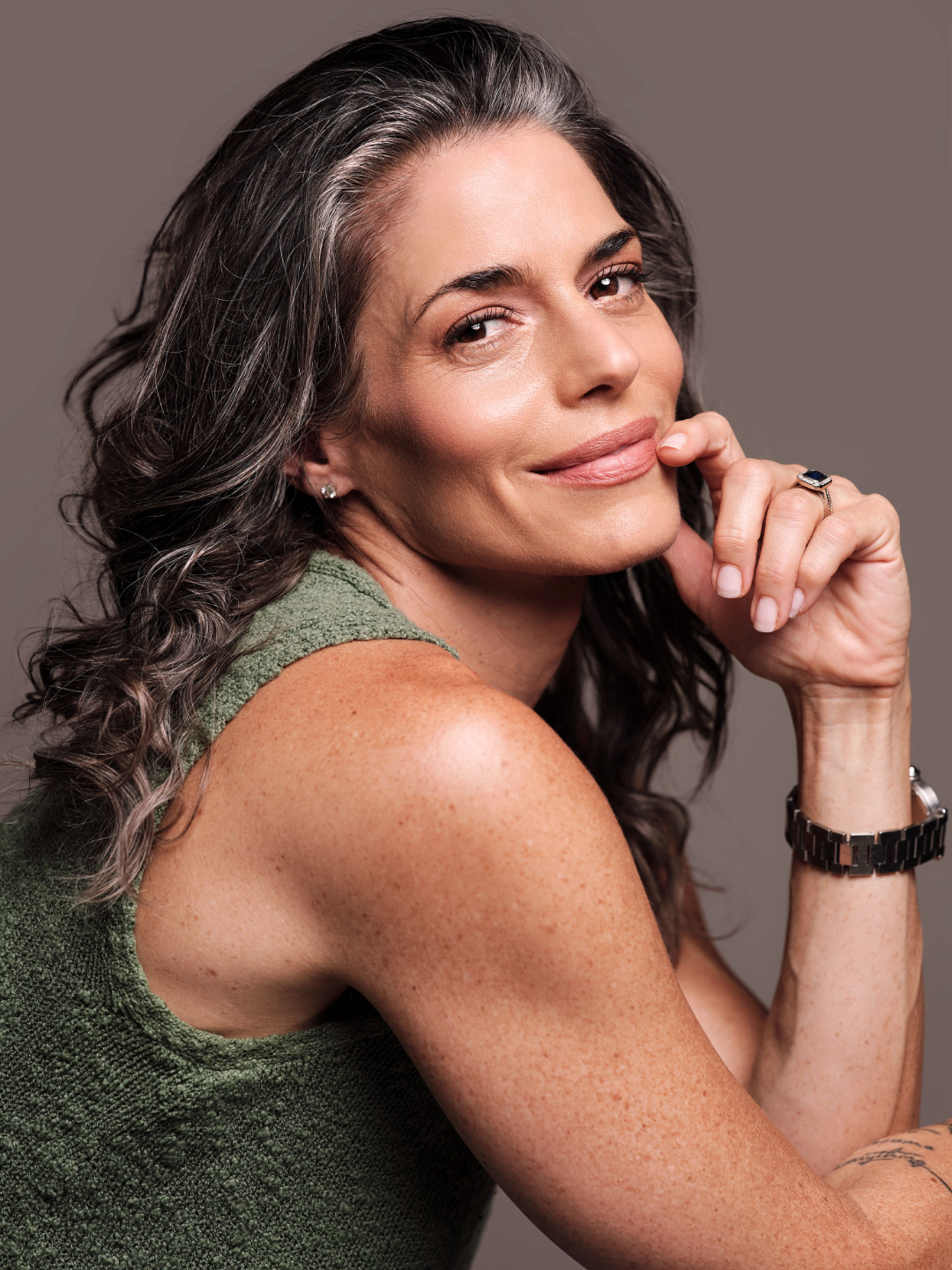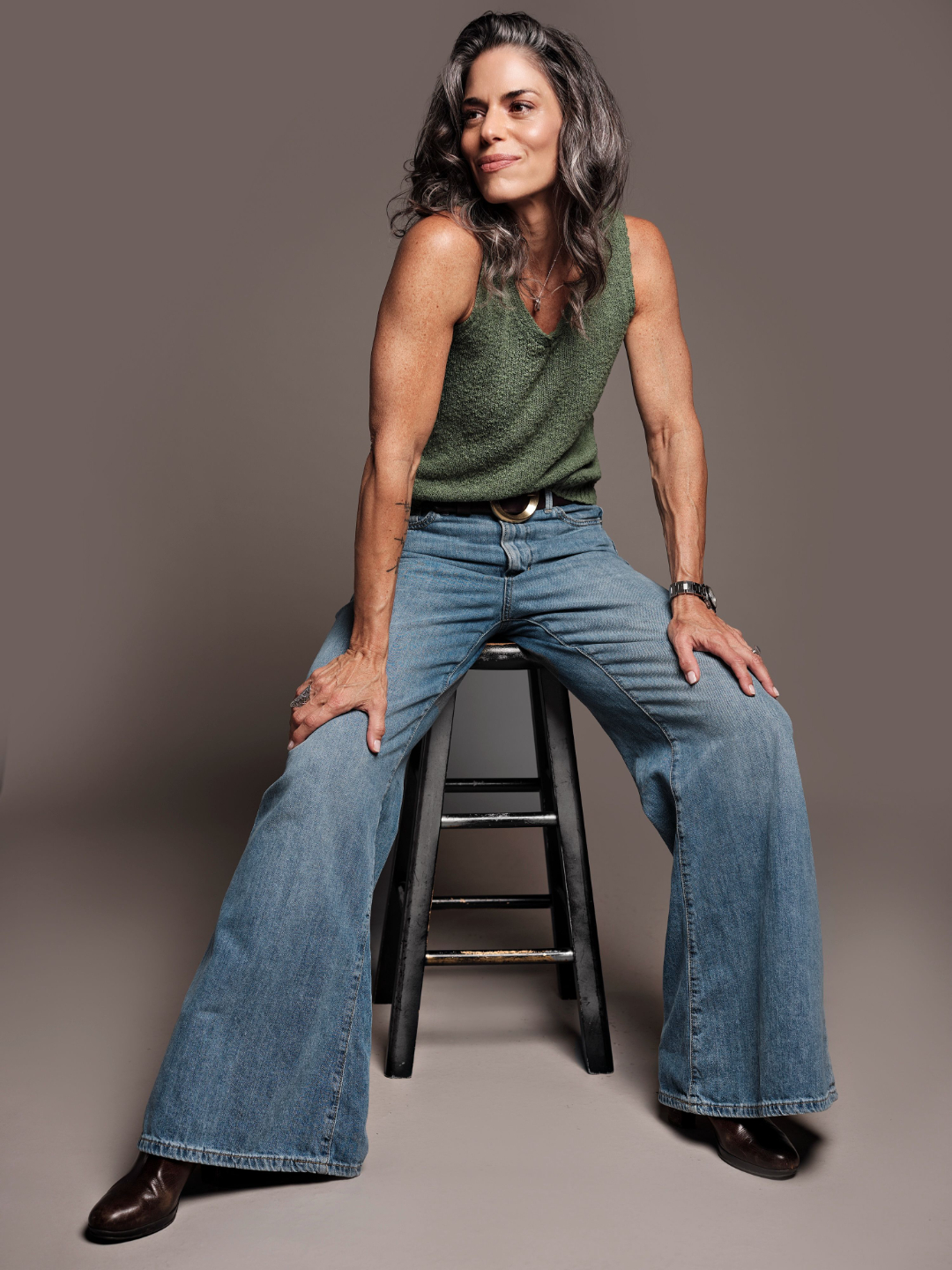7 Proven Ways to Stimulate Collagen Naturally for Firmer, Younger-Looking Skin
Aug 12, 2025
Over 45 and noticing your skin is losing its bounce? Me too.
But at 54, I’ve learned that collagen decline isn’t inevitable — but you do have to be intentional about how you stimulate it. From the gym to my skincare cabinet, I’m sharing my strategies that keep my skin firm, lifted, and glowing.
Collagen is the protein that keeps our skin firm, smooth, and resilient. It also plays a huge role in joint health, bone strength, and overall tissue repair. Unfortunately, collagen production starts to slow down in our 20s and drops even more sharply during perimenopause and menopause — which is why skin can start to look thinner, less elastic, and more prone to wrinkles.
The good news? You can take proactive steps to help your body make more of it. Below are 7 research-backed ways to stimulate collagen naturally so you can age well from the inside out.
1. Lift Heavy Weights
Strength training does far more than sculpt your body — it’s also a collagen booster. When you lift weights, your body increases production of human growth hormone (HGH) and stimulates fibroblasts, the cells responsible for making collagen.
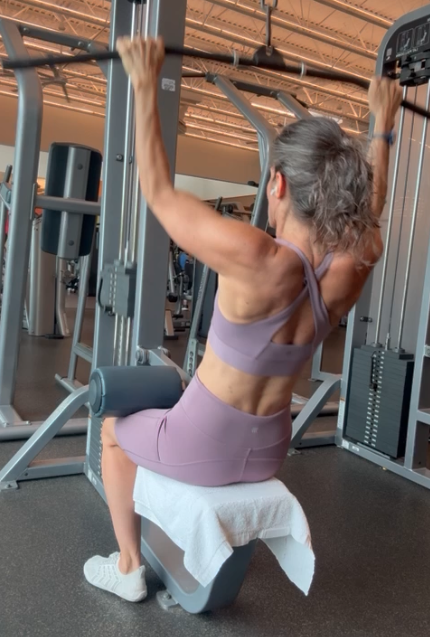
This not only improves skin firmness but also strengthens tendons, ligaments, and bone density — all of which rely on collagen. Not only is weightlifting great for longevity and strength, but it's also a beauty move - it stimulates collagen! I aim for two to three strength sessions per week, and I gradually increase resistance to challenge my muscles and connective tissue. You'll want to start thinking about squats, deadlifts, push presses, and lat pull-downs for full-body benefits.
2. Eat Collagen-Building Foods
Your skin needs the right raw materials to make collagen. That means eating enough protein — especially sources rich in the amino acids glycine, proline, and hydroxyproline. I aim for my ideal body weight in grams of protein on a daily basis (for me, my ideal weight is 120 pounds, or 120g of protein).
Great choices include:
-
Chicken and turkey (especially the skin)
-
Egg whites
-
Fish and seafood
-
Beef and lamb
-
Bone broth (a powerhouse for glycine)
Don’t forget collagen-supporting nutrients:
-
Vitamin C (bell peppers, strawberries, citrus) — helps link collagen fibers together
-
Zinc (pumpkin seeds, oysters, beef) — aids tissue repair
-
Copper (cashews, sesame seeds, dark chocolate) — necessary for collagen cross-linking
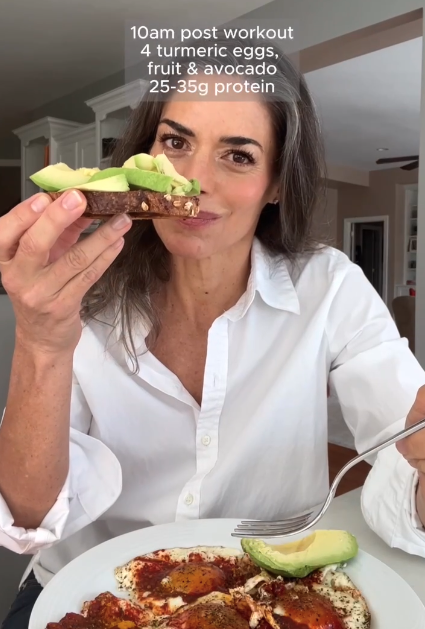
Eating a variety of these foods daily gives your body the building blocks it needs for skin, joints, and connective tissue repair. When in doubt: prioritize protein on your plate, and opt for animal protein, as that is the most nutrient-dense type that will give you the best collagen.
3. Facial Exercises
Your face has over 40 muscles, and just like the rest of your body, they benefit from targeted exercise. Facial yoga and facial resistance training increase circulation and lymphatic drainage, delivering more oxygen and nutrients to skin cells.
Over time, this stimulation encourages collagen and elastin production, leading to firmer, lifted contours. Just 5–10 minutes a day can make a visible difference. You might've seen some of my videos on social promoting cheek lifts, jawline presses, and brow smoothers; these don't just relax facial muscles and develop tone! The collagen boost means you're getting a natural facelift effect. You can also explore my facial exercise program which is designed to build facial muscle and increase collagen.
4. Vitamin A or Bakuchiol
Topical Vitamin A (retinol or prescription tretinoin) is one of the most researched collagen stimulators in skincare. It works by speeding up cell turnover and signaling fibroblasts to make more collagen, helping to thicken the dermis (the skin layer where collagen lives). I personally love Maya Chia's The Straight A, I've been using it for years. This product pairs encapsulated Vitamin A with bakuchiol and moth‑bean extract to deliver the anti‑aging impact of Retin‑A—smoother, plumper, more radiant skin—without the usual irritation or toxic BHT (Code Silver15 for 15% savings).
If your skin is sensitive or you prefer a plant-based option, bakuchiol is a gentle alternative shown to have similar effects without the same risk of irritation. Consistency is key — results build over months, not weeks. Sensitive Skin’s Elixir harnesses bakuchiol—a gentler alternative to retinol—to help reduce fine lines, improve texture, and support collagen production, offering visible anti‑aging benefits with minimal irritation (Code Juliana15 for 15% savings).
5. Red and Near-Infrared Light Therapy
Red light (around 630–660 nm) and near-infrared light (around 810–850 nm) penetrate deep into the skin, stimulating your mitochondria (your cells’ energy factories) to produce more ATP. This cellular energy kickstarts collagen and elastin synthesis while reducing inflammation.
Regular use — whether with a full-face LED mask or a targeted handheld device — can improve skin elasticity, soften fine lines, and give skin a healthier glow. For best results, use 3–5 times per week for 10–20 minutes. There are lots of varying LED masks on the market, most are fantastic, I'll do a separate post on that soon.
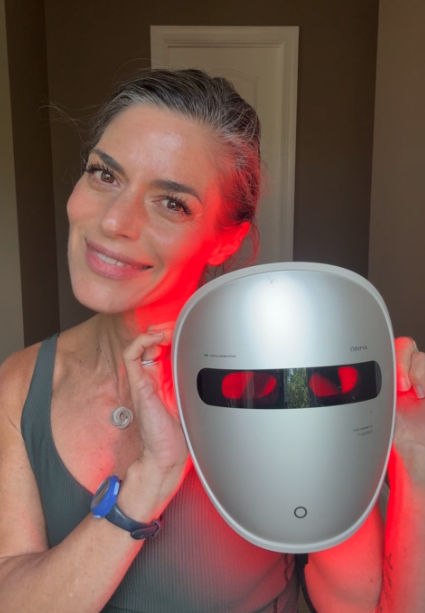
6. Collagen Peptides
Collagen peptide supplements are hydrolyzed so your body can easily digest and absorb them. Once broken down, the amino acids (glycine, proline, hydroxyproline) enter your bloodstream and become available to rebuild collagen in skin, joints, cartilage, and ligaments.
I personally add collagen peptides to my morning Vanilla Chai Latte protein drink — it’s an easy, delicious ritual that supports my skin from the inside out. I use Truvani Collagen Peptides - just 1 ingredient, no unnecessary extra fillers, sugars or mysterious ingredients you don't want ingesting. Studies suggest taking collagen consistently for at least 8–12 weeks for visible results, but within 2 weeks I noticed stronger nails and less hair / lash shedding.
7. Microneedling
Microneedling uses fine, sterile needles to create controlled micro-injuries in the skin. This triggers your body’s natural wound-healing process, which ramps up collagen and elastin production.
Over time, microneedling can firm skin, reduce fine lines, improve texture, and fade scars. Treatments can be done professionally for deeper results or at home with a quality dermaroller (just be sure to follow strict hygiene protocols). Pair with a collagen-boosting serum afterward to enhance absorption.
I am a big fan of Gin Amber Beauty's Dermaroller. It is the gold standard in micro-needling, with 192 individual stainless-steel needles, as opposed to cheaper knockoffs that can harm your skin barrier. I do this twice a week, and it's a bit uncomfortable during the process, but the payoff.... my skin looks stunning the next day. I love this product; you can learn why I'm so devoted here. Code Juliana15 for 15% savings.
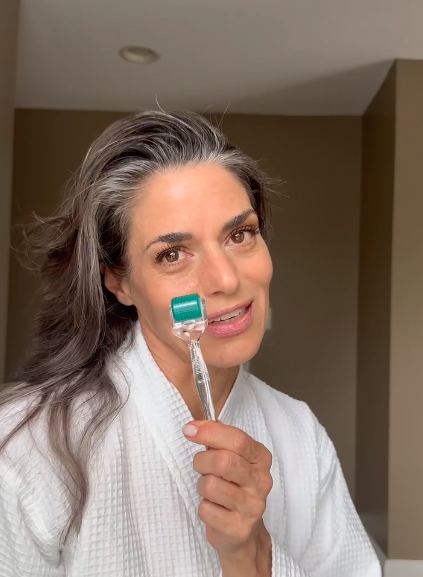
Final Thoughts
Collagen isn’t just about beauty — it’s about whole-body vitality. By combining these strategies — from smart nutrition to targeted treatments — you can support your skin, joints, and bones for years to come.
If you're interested in learning more about how I'm aging well naturally, sign up for our monthly newsletter. It's chock full of tips and strategies around diet & nutrition, exercise & weightlifting, stability & mobility, sleep strategies, perimenopause tips & more. It's definitely NOT spammy, and if it's not your cup of tea, you can unsubscribe at any time.
Aging is inevitable, but how we age is largely in our control. Let's do this. Let's age well naturally, lovelies-
x
Juliana
PS - if you enjoyed this blog post, sign up for our monthly newsletter! We drop aging well strategies on nutrition, exercise, sleep, HRT, clean beauty, facial exercise & more.

